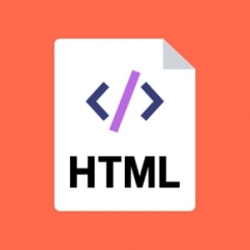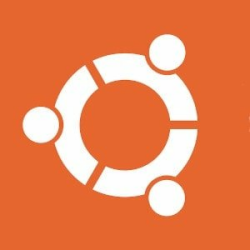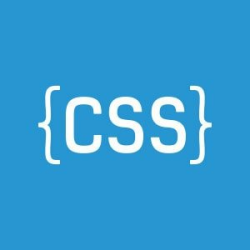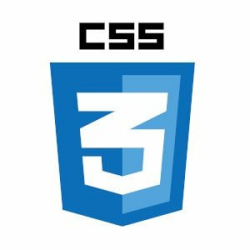What's New in PHP 8.3? Your Guide to the Latest Features and Enhancements

PHP, the popular scripting language, continues its evolution with the major release of PHP 8.3. This update, though categorized as a minor release, brings a plethora of new features and improvements that are sure to excite developers worldwide. In this comprehensive review, we will delve into the exciting enhancements PHP 8.3 has introduced.
PHP 8.3: Release Date and Installation
PHP 8.3 was officially released on November 23, 2023, following a meticulous testing cycle including alpha, beta, and release candidate versions. If you're a Laravel Valet user, you can install PHP 8.3 using the Homebrew package manager. Remember to set up your environment correctly and verify the PHP version with the php --version command on the terminal.
New Features and Improvements
Let's explore the most notable features and improvements introduced in PHP 8.3.
1. Introduction of Typed Class Constants
PHP 8.3 introduces typed class constants, a significant enhancement to PHP's typing system. This feature extends to not only class constants, but also constants within interfaces, traits, and enums. Typed class constants can enhance type consistency, especially when working with subclasses derived from base declarations.
interface ConstTest {
const string VERSION = 'PHP 8.3';
}
// Illegal:
interface ConstTest {
const float VERSION = 'PHP 8.3';
}The new #[\Override] attribute introduced in PHP 8.3 allows developers to communicate their intent explicitly when overriding a method from a parent class or an implemented interface. This attribute can help prevent potential bugs caused by typos or changes in parent methods.
class SomeClass {
public function someMethod() {
}
}
class SomeOtherClass extends SomeClass {
#[\Override]
public function someMethod() {
}
}3. Dynamic Fetching of Class Constants and Enum Members
PHP 8.3 brings a more intuitive syntax for dynamically fetching class constants and enum members, replacing the previous cumbersome use of the constant() function. This enhancement simplifies the dynamic access to class constants and enum members, improving code readability.
$constantName = 'THE_CONST';
$memberName = 'FirstMember';
echo MyClass::{$constantName};
echo MyEnum::{$memberName}->value;4. New JSON Validation Function
The json_validate() function is a new addition in PHP 8.3 for validating whether a string is a valid JSON object. This function checks the JSON syntax without constructing associative arrays or objects, thereby conserving memory.
if (json_validate($maybeJSON)) {
// Do something with $maybeJSON
}5. Additional Methods and Enum for \Random\Randomizer Class
PHP 8.3 introduces several new methods and an accompanying enum for the \Random\Randomizer class. The getBytesFromString() method allows you to generate a string of a specified length using randomly selected bytes from a given string. The getFloat() and nextFloat() methods return random float values within defined ranges.
$rng = new Random\Randomizer();
$alpha = 'ABCDEFGHJKMNPQRSTVWXYZ';
$rng->getBytesFromString($alpha, 6); // "MBXGWL"
$rng->getFloat(0, 5); // 2.39374469062176. Enhanced `stream_context_set_options()` Function
The improved stream_context_set_options() function in PHP 8.3 can handle multiple options, offering more flexibility for developers when manipulating stream contexts.
stream_context_set_options($stream_or_context, ['http' => ['method' => 'POST']]);7. Support for Aliasing Built-in PHP Classes
PHP 8.3 allows the class_alias() function to create aliases for built-in PHP classes, offering increased versatility in code structuring and naming conventions.
class_alias(\DateTime::class, 'MyDateTime');
$customDateTime = new MyDateTime();Minor Changes and Deprecations
In addition to the above features and enhancements, PHP 8.3 brings several minor changes and deprecations, aimed at refining the language and aligning it with evolving industry standards.
1. Improved `unserialize()` Error Handling
The error handling of unserialize() function in PHP 8.3 has been improved. Error conditions that used to trigger notices (E_NOTICE) will now generate warnings (E_WARNING). This change promotes consistency in error handling and encourages developers to handle unserialized errors more proactively.
2. Changes to `getclass()` and `getparent_class()` Functions
Invoking get_class() and get_parent_class() functions without parameters has been deprecated in PHP 8.3. Developers are advised to include the $object parameter when using these functions to prevent deprecation notices.
3. Enhanced HTML Highlight Tag
The HTML output generated by syntax highlighting functions, specifically highlight_file and highlight_string, is now enclosed within <pre><code> tags. This refinement enhances the legibility of the highlighted code and adheres more closely to contemporary HTML standards.
4. Granular DateTime Exceptions
PHP 8.3 introduces specialized Exception and Error classes tailored for date-related issues. These extension-specific classes contribute to a more precise error reporting system, empowering developers to better identify and resolve date-related errors with increased efficiency.
Conclusion
While PHP 8.3 may not bring groundbreaking features like its predecessors, its focus is on refining the language and addressing syntax and error handling aspects. Its new features, improvements, and refinements undoubtedly enhance code quality and maintainability. Developers and teams familiar with these enhancements can strategically leverage them to deliver high-quality PHP applications.











Please login or create new account to add your comment.